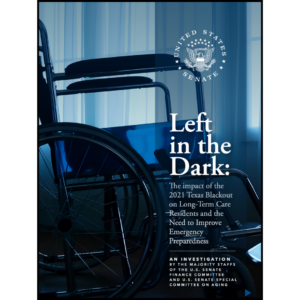Maintaining resident sexual freedom with safety in assisted living
Most assisted living facilities are unprepared for seniors to have intimate relationships.
A new study found most assisted living facilities don’t have systematic policies or staff training to protect residents’ rights to sexual freedom, according to findings published in the Journals of Gerontology: Social Science.
Research conducted by the Gerontology Institute at Georgia State University found an imbalance between the facility’s efforts to create autonomy with residents’ rights to intimacy.
“Residents of assisted-living facilities have the right to certain things when they’re in institutional care, but there’s not an explicit right to sexuality,” says Elisabeth Burgess, study author and director of the Gerontology Institute, in a press release. “There’s oversight and responsibility for the health and well-being of people who live there, but that does not mean denying people the right to make choices. If you have a policy, you can say to the family when someone moves in, here are our policies and this is how issues are dealt with. In the absence of a policy, it becomes a case-by-case situation, and you don’t have consistency in terms of what you do.”
Researchers observed and interviewed administrators, staff, residents and family members at six varied assisted living facilities in greater Atlanta area.
Staff and administrators agreed residents had rights to sexual freedom and intimate behavior but cited concerns, including a sense of responsibility for residents’ health and safety, respecting family members’ wishes requests, questions of consent and cognitive impairment and the potential for sexual abuse. Those concerns contributed to what researchers described as “an environment of surveillance, which discouraged and prevented sexual and intimate behavior.”

Nicole was Senior Editor at I Advance Senior Care and Long Term Living Magazine 2015-2017. She has a Journalism degree from Kent State University and is finalizing a master’s degree in Information Architecture and Management. She has extensive studies in the digital user experience and in branding online media. She has worked as an editor and writer for various B2B publications, including Business Finance.
Related Articles
Topics: Executive Leadership











